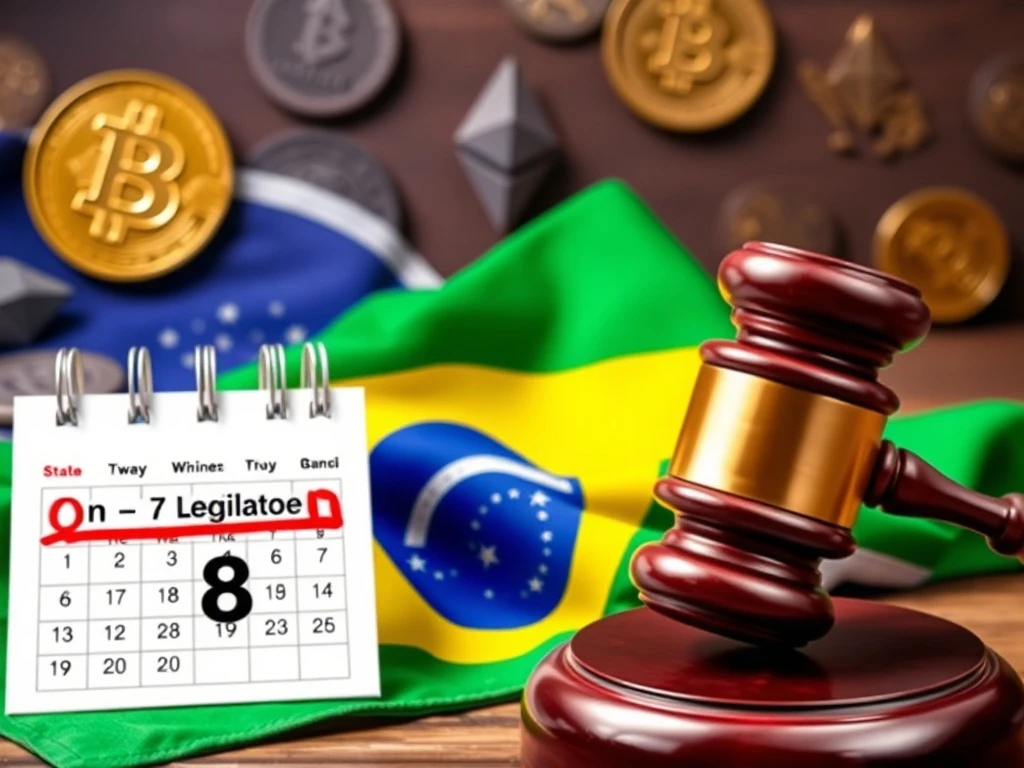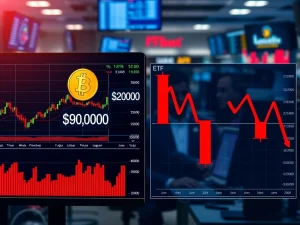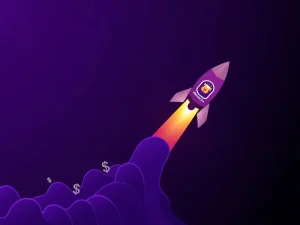Urgent: Brazil Crypto Tax Battle Heats Up Ahead of October 8 Deadline

The cryptocurrency world is watching Brazil closely as a pivotal deadline approaches. President Luiz Inácio Lula da Silva’s controversial 17.5% flat crypto tax, introduced via a Provisional Measure in June, is now under intense congressional scrutiny. With an October 8 deadline looming for its confirmation, the outcome of this debate will significantly shape the future of the Brazil crypto tax landscape and its impact on digital assets across the nation.
What’s Driving Brazil’s Crypto Tax Overhaul?
Brazil’s government, under President Lula, introduced this new crypto taxation scheme with several key objectives in mind. The primary goal is to integrate digital assets more formally into the country’s economy and to generate much-needed revenue. This measure marks a significant departure from the previous system, which offered an income tax exemption for smaller trading operations. Previously, only transactions exceeding 35,000 reais (approximately $6,320) were subject to taxation.
The government’s rationale also includes:
- Revenue Generation: To bolster state coffers, potentially offsetting proposed increases in the financial transaction tax by broadening the crypto tax base.
- Economic Formalization: To bring decentralized finance (DeFi) activities and self-custodied assets under the regulatory umbrella, aiming for greater transparency and control.
- Financial Reform: Part of a broader effort to modernize Brazil’s financial system and ensure that the rapidly growing digital asset market contributes equitably to the national economy.
How Will This Crypto Regulation in Brazil Impact Traders?
The proposed 17.5% flat tax has sparked considerable debate, largely due to its broad application. Unlike the previous threshold-based system, this new measure imposes the flat rate on all crypto transactions, regardless of their size. This shift is particularly concerning for retail traders who previously benefited from the income tax exemption on minor operations.
Key impacts include:
- Increased Burden on Retail Traders: Smaller investors, who make frequent, low-value trades, may find their profit margins significantly eroded. Critics argue this disproportionately affects them.
- Scope Expansion: The measure explicitly targets decentralized finance (DeFi) activities and self-custodied assets, presenting new challenges for compliance and raising questions about its legal enforceability in a decentralized environment.
- Potential Stifling of Innovation: Industry stakeholders and some lawmakers fear that such a stringent crypto regulation in Brazil could deter innovation and investment in the country’s nascent digital asset ecosystem.
Are There Alternatives to Brazil’s Flat Crypto Taxation Scheme?
While the Provisional Measure pushes for a flat 17.5% tax, a separate proposal under congressional discussion offers a different approach: a tiered tax system. This alternative aims to create a more equitable framework, balancing revenue generation with fairness to various income levels.
The proposed tiered system includes:
- Lower Brackets: A 15% rate for individuals earning less than 20 times Brazil’s minimum wage.
- Higher Brackets: Progressive rates climbing up to 35% for significant profits.
This layered approach seeks to mitigate the impact on smaller traders while still capturing substantial revenue from larger gains. However, industry groups remain skeptical, warning that even a tiered system could deter participation in an already volatile market if the thresholds are not carefully calibrated.
What Challenges Lie Ahead for Digital Assets in Brazil?
The path to implementing this new crypto taxation scheme is fraught with challenges, extending beyond just the tax rate itself. The legal validity and practical enforcement mechanisms are significant sticking points, especially given Brazil’s currently fragmented regulatory framework for digital assets.
Major challenges include:
- Legal Validity and Enforcement: Concerns persist about how the government will define “significant profits” in a decentralized market or enforce compliance for self-custodied assets, leading to uncertainty for investors.
- Political Dynamics: President Lula’s coalition faces resistance from lawmakers representing rural and small business sectors, who fear the tax could unfairly burden informal crypto users. Securing cross-party support will require significant negotiation and potential compromises on tax thresholds and exemptions.
- Regulatory Clarity: The administration has yet to detail clear guidelines for various aspects of the tax, adding to the ambiguity for both individuals and businesses operating with digital assets in Brazil.
Beyond Taxation: What’s Next for Lula’s Crypto Policy?
The debate over the Brazil crypto tax aligns with President Lula’s broader economic agenda, which aims to position Brazil as a key player in the global digital economy. While the tax itself is a direct revenue-generating measure, it fits into a larger vision that includes significant infrastructure projects and regional tech initiatives.
These initiatives include:
- Infrastructure Development: Investments in critical infrastructure to support digital growth.
- Regional Tech Initiatives: Such as a feasibility study for a subsea cable connecting BRICS nations, highlighting Brazil’s ambition to foster international digital connectivity.
Analysts suggest that the funds generated from a formalized crypto taxation scheme could be channeled into these ambitious projects, although the exact implementation timelines remain unclear. The government’s emphasis on financial inclusion also suggests a desire to ensure that the growth of digital assets benefits a wider segment of the population, not just a select few.
As the October 8 deadline approaches, the Brazilian Congress is at a critical juncture. The outcome of the scheduled August 6 hearing and subsequent negotiations will determine the fate of this controversial crypto taxation scheme. The balance between regulatory oversight and fostering market growth will be central to the debate, with significant implications for Brazil’s crypto ecosystem and its role in the global digital asset landscape.
Frequently Asked Questions (FAQs)
Q1: What is the proposed Brazil crypto tax?
The proposed Brazil crypto tax is a flat 17.5% levy on all cryptocurrency transactions, regardless of trade size. It was introduced by President Luiz Inácio Lula da Silva via a Provisional Measure in June, eliminating previous income tax exemptions for minor trading operations.
Q2: Why is the Brazilian Congress scrutinizing this crypto taxation scheme?
The Brazilian Congress is scrutinizing the scheme due to significant debate among lawmakers and industry stakeholders. Critics argue it disproportionately impacts retail traders and may stifle innovation, while supporters see it as a necessary step to integrate digital assets into the formal economy and generate revenue.
Q3: What is the deadline for the Provisional Measure’s validity?
The critical deadline for the Provisional Measure to be confirmed is October 8. Failure to approve it by this date would result in its automatic repeal.
Q4: How does this new Brazil crypto tax differ from the previous system?
The new tax eliminates the previous income tax exemption for minor trading operations and imposes a flat 17.5% tax on all crypto transactions. The prior system only taxed transactions exceeding 35,000 reais (approximately $6,320), offering a threshold-based exemption.
Q5: Are there any alternative proposals for crypto regulation in Brazil?
Yes, a separate proposal under discussion outlines a tiered tax system. This alternative suggests a 15% rate for individuals earning less than 20 times Brazil’s minimum wage, with higher brackets of up to 35% for significant profits, aiming for a more equitable approach.
Q6: What are the main concerns about this Lula crypto policy?
Main concerns include its potential negative impact on retail traders, the stifling of innovation, challenges in enforcing the tax on decentralized finance (DeFi) and self-custodied assets, and a lack of clear regulatory guidelines from the administration.










